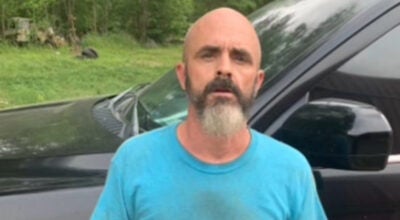Jindal tax plan stalled as session starts
Published 12:07 am Sunday, April 7, 2013
BATON ROUGE (AP) — Gov. Bobby Jindal’s main legislative priority, a massive tax rewrite proposal, is in trouble and finding little public support as lawmakers open their annual regular session Monday.
Over the next two months, legislators will decide the fate of Jindal’s tax revamp, craft next year’s budget and sift through hundreds of other proposals on health care, education and gun rights.
Jindal wants to get rid of state income taxes for businesses and individuals, saying it would improve the state’s business climate, help create new jobs and make the tax structure fairer for households.
To replace the $3 billion lost in income taxes, the Republican governor proposes to raise the state sales tax from 4 percent to 6.25 percent, charge the higher sales tax rate on previously-untaxed services, boost the tobacco tax and remove dozens of tax breaks.
“Eliminating income taxes and more than 200 loopholes will let Louisianians have more control over their own money, give everyone a fair shake and help make Louisiana the best place to do business,” Jindal said in a recent speech in Alexandria.
But Jindal’s had trouble selling the idea to lawmakers, and recent polls have shown the proposal isn’t popular with state residents either.
“Overall, I do not see a groundswell of support,” said Rep. Eddie Lambert, R-Gonzales. “I don’t think it can get passed. It would have to be a drastic turnabout.”
Lawmakers are stalling the plan until they get their own analysis of who it helps, who it hurts and whether it could worsen the state’s budget woes. Louisiana would have the highest average local and state sales tax rate in the nation if the package passes.
House Speaker Chuck Kleckley, R-Lake Charles, said the House Ways and Means Committee, the first stop for the governor’s tax package, won’t debate the measures until lawmakers get the independent review of the Legislative Fiscal Office.
“There’s been so many confusing and conflicting stories on the numbers,” he said.
Criticism has come from across the political spectrum, from religious leaders and the state’s leading lobbying group for businesses. Numbers have changed, and questions have been raised about whether it would be “revenue neutral” as the governor suggests.
“What I’m getting back here at home, it’s overwhelmingly opposition to this,” said Rep. Mike Danahay, D-Sulphur, a member of the Ways and Means Committee. “People come up to me at the store, at church and they’re just like, ‘Don’t do this,’ especially small business people.”
While struggling to gain traction for his tax plan, Jindal has also run into continuing criticism for his budgeting tactics and his $24.8 billion spending plan for the new fiscal year that begins July 1.
Jindal’s budget proposal would close a $1 billion gap with patchwork funding criticized by conservative Republicans and the anticipation that LSU’s public hospitals would be privatized, an idea opposed by Democrats.
Five straight years of budget cuts are wearing on lawmakers, and they worry if the governor’s tax plan doesn’t generate as much cash as would be lost by eliminating income taxes, the problems would be worse.
“If it comes up short, what do we do? We’re already looking at billion-dollar deficits,” Lambert said.
The session, which must end by June 6, begins at noon Monday. Jindal is scheduled to speak to a joint meeting of the House and Senate an hour later and pitch his tax restructuring proposal.
Lawmakers are floating other tax plans, including their own versions of income tax phase-outs, tax break eliminations, tobacco tax hikes and other ideas. A Baton Rouge legislator is proposing a new 5-cent tax on disposable plastic bags used at grocery stores, for example.
More than 900 bills have been pre-filed, including proposals to rein in the costs of Louisiana’s free college tuition program called TOPS, to toughen school safety plans after a recent Connecticut school shooting and to let public colleges raise tuition.
Republican lawmakers are proposing to ban enforcement of any new federal restrictions that might be placed on semi-automatic firearms, while Democratic lawmakers are seeking to enact tougher gun restrictions.
Jindal-backed education laws that passed last year but were ruled unconstitutional in district court will be revisited. Legislators will consider whether to overrule Jindal and to enact the Medicaid expansion allowed under the federal health care overhaul.
The governor’s also pushing sentencing changes that would let some nonviolent drug offenders out of prison early if they complete an intensive treatment program and bills aimed at keeping young people out of juvenile detention facilities.
Annual debates over red light cameras, term limits for statewide elected officials, retirement benefits for public employees and the secrecy of the governor’s office also are expected to return this session.





